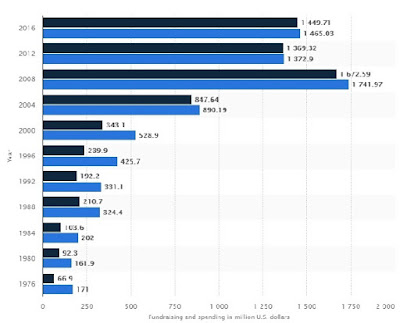Are billionaires good for the world? Is hyper wealth an important and necessary component
of capitalism or is it a poison that has a toxic effect on our social compact? Does it stockpile resources that could
otherwise lead to a more harmonious economy if they were more evenly
distributed?
The super wealthy capitalist is seen as a lynchpin of the
capitalist economy and is fantasized in almost mythological terms. He or she is the one who will risk all for an
ingenious idea, who will mortgage the family home and work 7 days a week to
take a tiny Mom and Pop venture to a mega corporation.
The necessity of having the fabulously rich in society is rarely
questioned. But let’s look at the
underlying principles and see if they are really so axiomatic. I can see three basic ideas that are said to undergird
this so-called necessity: (1) the free
market will necessarily produce the super wealthy and should not be inhibited,
(2) capitalism needs the super wealthy to fund new ventures, and (3) people
will not be motivated to create new businesses if the reward of becoming super
wealthy is no longer there as an incentive.
The first justification is a circular argument. The free market and its legendary ‘invisible
hand’ is not an absolute. There are
already many adjustments being made to the ‘free market’ because of the complex
interwoven nature of post-industrial society and global economies. The market may allow a huge amount of wealth
to move in one direction (the absurd amount of money that is captured by wall
street and various money managers is a classic example) but that does not mean
that it should stay there or that the ‘market’ would somehow be harmed by its
re-direction.
The second argument, that the super wealthy are needed as
venture capitalists, is more difficult to counter. I would argue that the super wealthy and the
venture capital ‘society’ become a club and self-fulfilling prophecy for new
ventures. Is the serial entrepreneur repeatedly
successful because of some rare genius or simply because he or she now has
access to a club of mutually supportive wealthy people who promote one another’s
ventures both from a financial and marketing perspective?
I suggest that the new, more egalitarian forms of providing
capital – kickstarter and other Internet-based mechanisms - are better sources
of funding. And remember that most great
businesses did not need that much capital to get started. The modern examples of massive venture
funding and huge losses before success is achieved are perhaps examples of
forced business growth by the plutocracy, rather than organic, democratic
growth.
The 3rd argument, that entrepreneurs would not be
motivated to take the risks and sacrifices necessary if they are not hugely
rewarded, is amusing to me. Aren’t
capitalists idealized as noble spirits whose passion to create a new concept or
business is what drives them? Isn’t the
joy of creation and the feeling of accomplishment sufficient reward? Isn’t the challenge of building something and
seeing it flourish the true motivation for entrepreneurs? I am quite certain there would be more than
enough gallant entrepreneurs who would be inspired by these goals. I suspect
they would probably be a better class of entrepreneur in many ways.
And we are not talking about denying successful people their
financial rewards. Any successful entrepreneur
will have plenty of money. We are simply
talking about taking the massive wealth – tens of millions or billions of dollars – that are generated
by new businesses and feeding them back into society through infrastructure
development and tax cuts to the working poor and middle class.
Re-directing the huge wealth that might otherwise go into
billionaire’s pockets into a wider population would have many benefits. The public use for large infrastructure
projects would become the basis for the next generation of businesses and
technologies. Education through
university, trade school and even graduate school for the entire population
could easily be financed. And the money
that would find its way back into the population at large through tax breaks
would be spent in normal consumer fashion and thus stimulate the economy much
more than it would sitting in the vast holdings of some billionaire.
It is often theorized that the massive wealth of
billionaires is necessary for investment.
But investment is neither necessary nor worthwhile unless there is
demand. Returning the profits back to
the workers will create that demand. Investment
will surely follow and there will be no dearth of capital.
As to how to achieve a world without billionaires, that is
not a simple issue, but it is certainly attainable. Heavy individual income taxation such as
occurred in the 1950’s in the U.S. is one option. This taxation would have to target stock sales
and overall wealth as well as income. The tax would have to be careful to allow
full compensation for the investment and sacrifice that is made and provide a
reasonable level of wealth without allowing too much to accumulate.
Another is to heavily tax corporations that benefit from monopolistic
trends, such as Apple, Amazon, Google and others. This taxation would avoid the negative repercussions
of tech dynasties and overly powerful mega-corporations. The taxation might limit some innovation in
these companies, but having that innovation spread more evenly across other
companies is a better long-term situation.
In the end, having no billionaires (and eliminating even the
next several layers down) and no mega-corporations would lead to a much healthier
socio-political environment. Power and
wealth are too closely related, and they make for a toxic mix that is becoming
ever more dangerous for our fragile world.






